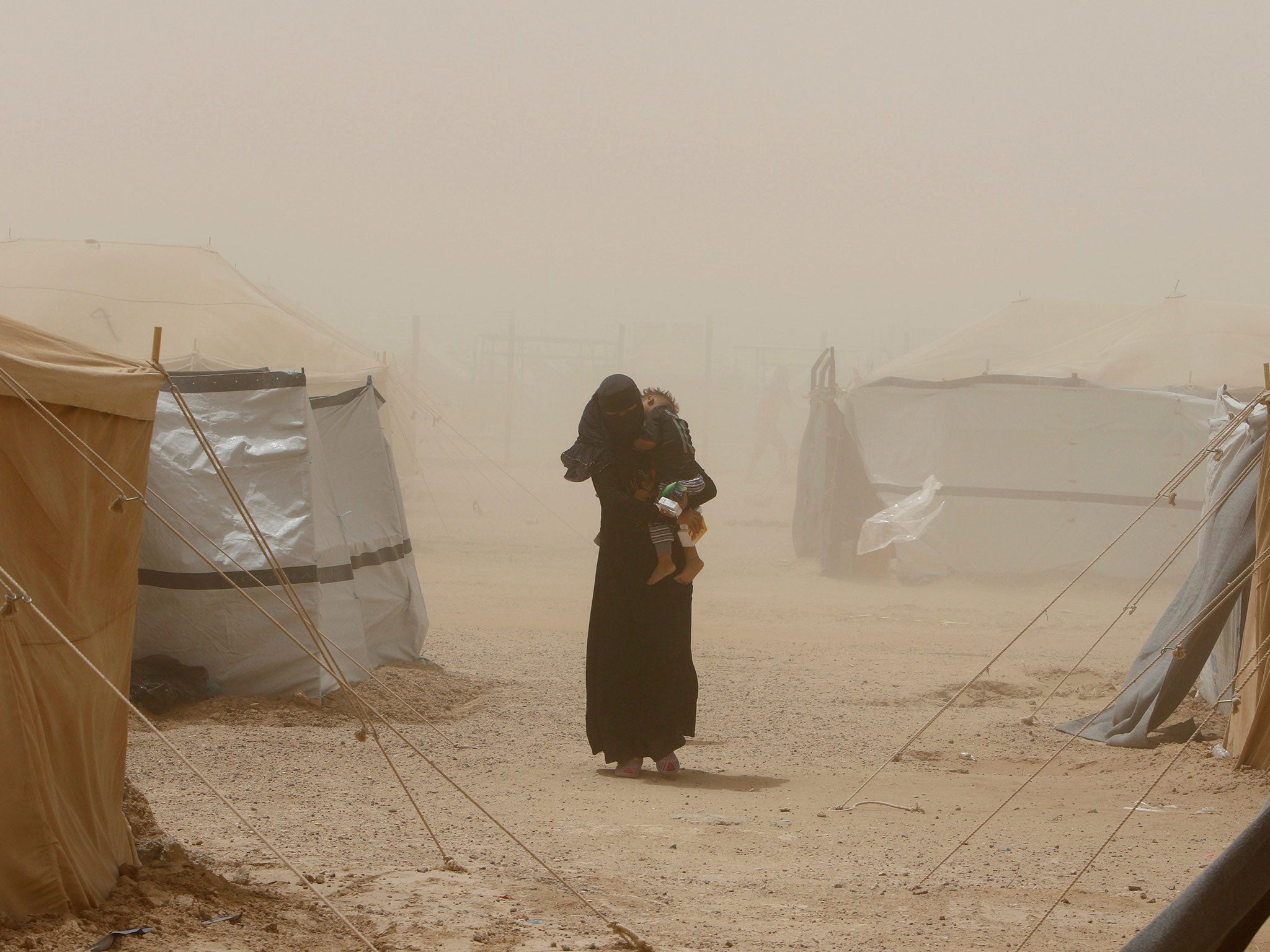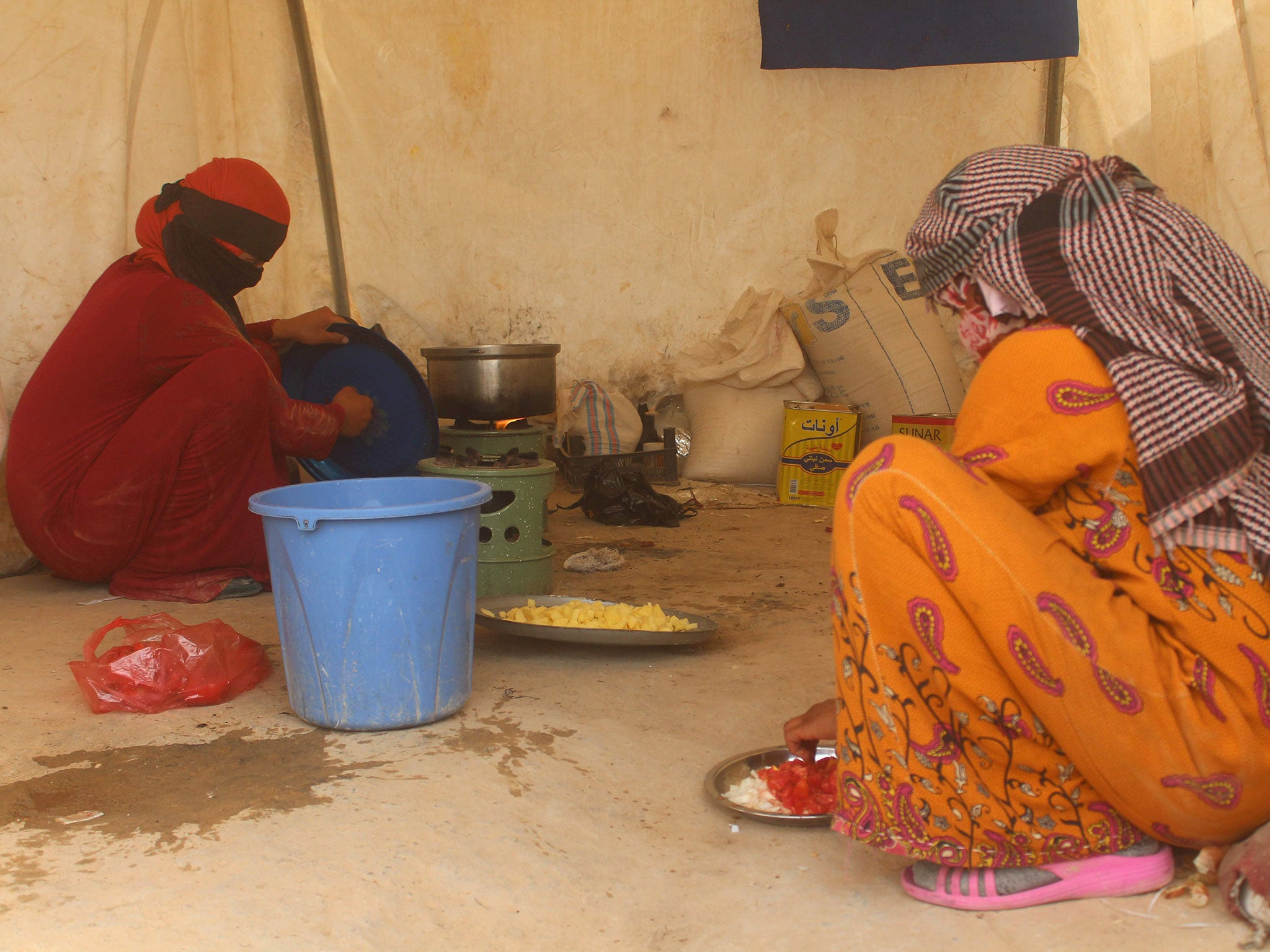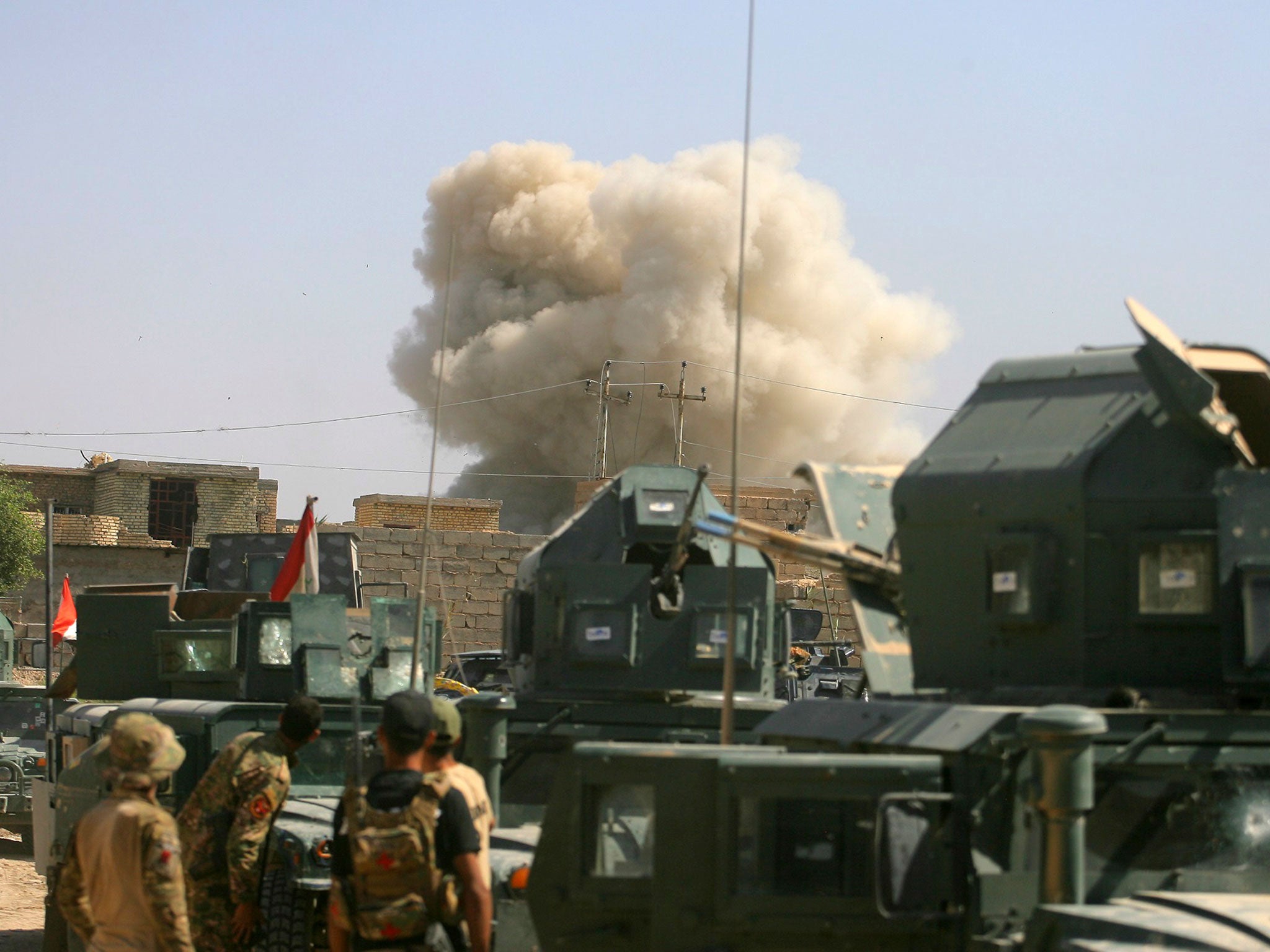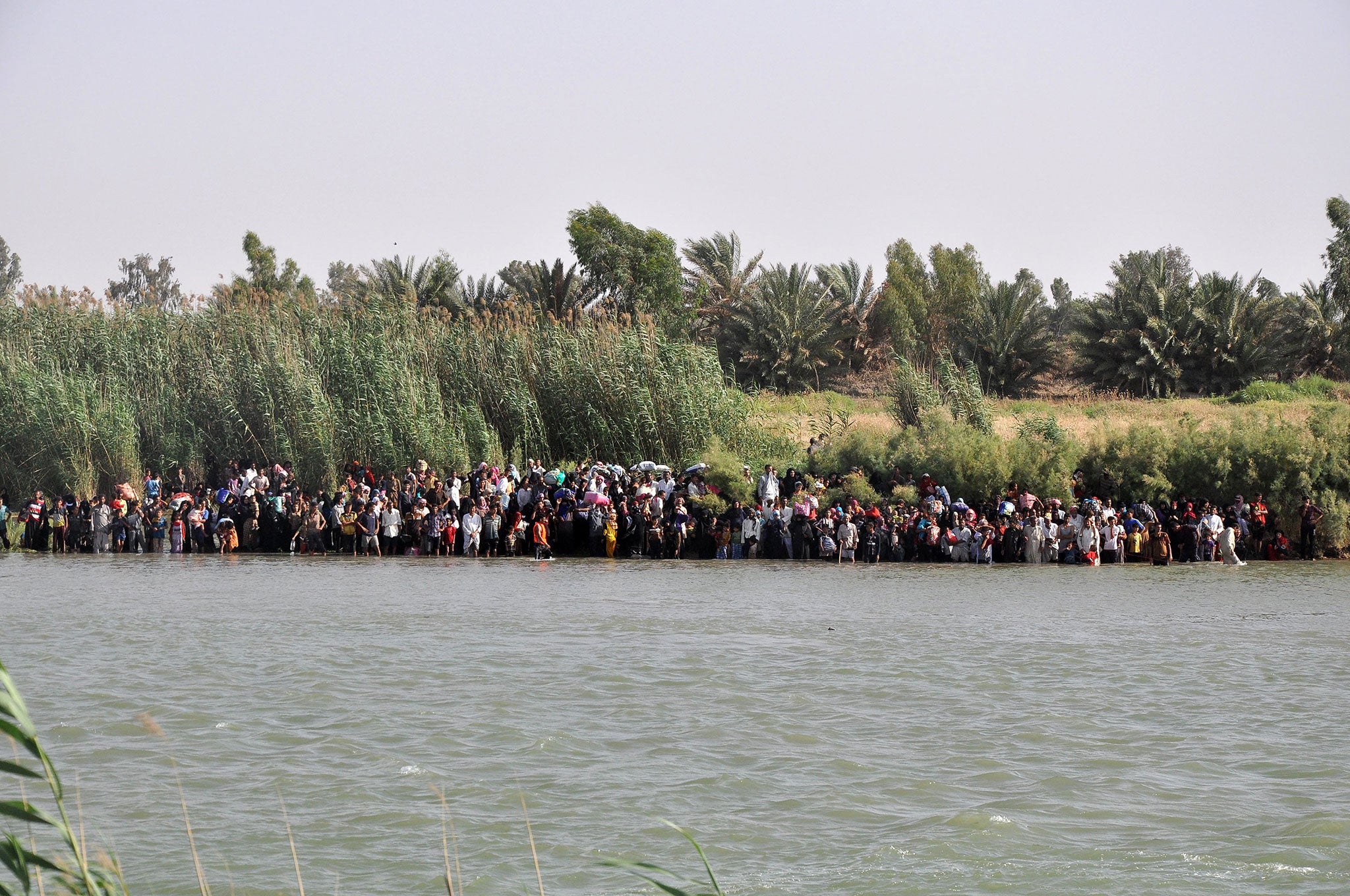Isis in Iraq: Families fleeing fighting in Fallujah finding new 'nightmare' without water and shelter in overcrowded camps
Aid workers warned that refugees could die if access to water, shelter and health care is not improved

Your support helps us to tell the story
From reproductive rights to climate change to Big Tech, The Independent is on the ground when the story is developing. Whether it's investigating the financials of Elon Musk's pro-Trump PAC or producing our latest documentary, 'The A Word', which shines a light on the American women fighting for reproductive rights, we know how important it is to parse out the facts from the messaging.
At such a critical moment in US history, we need reporters on the ground. Your donation allows us to keep sending journalists to speak to both sides of the story.
The Independent is trusted by Americans across the entire political spectrum. And unlike many other quality news outlets, we choose not to lock Americans out of our reporting and analysis with paywalls. We believe quality journalism should be available to everyone, paid for by those who can afford it.
Your support makes all the difference.Civilians fleeing Isis brutality and battles in the Iraqi city of Fallujah are arriving in refugee camps to find another “nightmare” that could cause more deaths, aid workers have warned.
More than 60,000 people have reached displacement camps since Iraqi forces started their advance on the so-called Islamic State’s stronghold last month, with demand for shelter, water and health care far outstripping supply.
Many have arrived in recent days, since militants retreated from checkpoints in parts of Fallujah, allowing families who would previously have been flogged or shot to escape.
But humanitarian agencies have warned that the surge has seen conditions deteriorate by the day, with hundreds of people left without shelter in temperatures nearing 50C and pregnant women, children and the elderly and disabled collapsing in the heat without medical care.
Saleh, an Iraqi man from Fallujah, told the Norwegian Refugee Council (NRC) he had been sleeping in the open at the Amiriyat al-Fallujah camp for six nights with his wife and six children.
“Women are sleeping on the bare ground here,” he said.
“My family has been here for five days and we have no water, only one blanket shared by seven people.
“Only today they filled the water tank…why is this happening to us? Let the United Nations help us and come and see how much we are suffering, let them see what we’re going through.”
They are among more than 150 families gathered outside the camp’s official borders, with access to only one water tank and no latrines.
The NRC said it was providing up to three litres of safe drinking water to each person per day but said the “dangerously low” amount was far below the emergency standard.
Aid workers fear that people could start resorting to unsafe water sources in the heat, as doctors report the spread of water-borne diseases.
Nasr Muflahi, the director of the NRC’s mission in Iraq, said: “What we’re seeing is the consequence of a delayed and heavily underfunded response with an extreme toll on the civilians fleeing from one nightmare and living through another one.
“The situation is deteriorating by the day and people are going to die in those camps unless essential aid arrives now. Fallujah may have been retaken but its citizens are facing a catastrophe.
“The governments engaged in this battle have the responsibility to provide the funding and the resources needed for the tens of thousands of innocent women, children and men displaced and left out on their own.”
Save the Children was also raising concern over the “crisis” in Fallujah and elsewhere, as an assault is expected to begin on Mosul, Isis’ largest stronghold in Iraq.

Maurizio Crivellaro, the charity’s country director in Iraq, said a United Nations funding shortfall had left humanitarian organisations struggling to meet basic needs
“There are already 3.5 million internally displaced people in Iraq, alongside 250,000 Syrian refugees, and the services to support them are overwhelmed,” she added.
“The international community cannot ignore the tragedy that is unfolding in Iraq. To stop this spiralling out of control, funding and support need to be put in place to help the Iraqi authorities and humanitarian agencies cope with the scale of the crisis.
“Otherwise, we’re facing a situation where young children are escaping the terror of life under siege only to find themselves at risk of hunger, disease and exposure in supposedly safe areas.”
The United Nations refugee agency (UNHCR) raised additional concerns over allegations of serious human rights violations and abuses against civilians by pro-government militias.
One video showed a body being dragged at speed by a military vehicle while a man in a military uniform beat his disfigured and bloodied head.
Another showed people being hit with a rifle and kicked in the head by men wearing military uniforms, and refugees have reported men and boys being separated and detained en masse.

A committee set up by the governor of Anbar Governor has found that at least 49 people had been killed, with some tortured, and 600 men disappeared after being taken into custody by armed groups operating in support of Iraqi security forces. Several suspects have been arrested.
A spokesperson for the UNHCR said it would continue to increase its emergency response in Amiriyat al-Fallujah, Khalidiya and Habbaniyah Tourist City, erecting hundreds more tents in three new camps and two extensions.
But the refugee agency has reached only 21 per cent of its funding requirement for Iraq and the surrounding region so far this year, launching an urgent appeal for $17.5 million (£12 million) to meet immediate needs.
It estimates that up to 84,000 people may have fled Fallujah since Iraq’s military offensive started on 23 May, including 10,000 over three days last week.
“UNHCR and its partners are working around the clock to provide assistance to families who have managed to escape Fallujah, with just the clothes on their back”, said its representative in Iraq, Bruno Geddo.
“In many cases, two or three families are having to share tents as there is not enough accommodation, and many new arrivals are having to sleep rough, without hygiene facilities.

“Agencies are scrambling to respond to the rapidly evolving situation - and we are bracing ourselves for another large exodus in the next few days as we estimate that thousands more people remain trapped in Fallujah.”
According to UN figures, the violence has forced more than 3.4 million Iraqis to flee their homes and more than 40 per cent of those displaced are from Anbar province.
Battles continued on Tuesday as government forces dislodged Isis fighters from two northern districts of the city, supported by air strikes from the US-led coalition.
An Iraqi military commander said at least 2,500 militants had been killed in the month-long offensive but gave no indication of casualities in government forces and their supporters.
Prime Minister Haider al-Abadi declared victory after special forces entered the city centre on Friday, capturing government buildings and the central hospital, but at least 20 per cent of Fallujah is still under Isis control.
The extremist group still controls Iraq's second-largest city of Mosul and large parts of neighbouring Syria.
Join our commenting forum
Join thought-provoking conversations, follow other Independent readers and see their replies
Comments